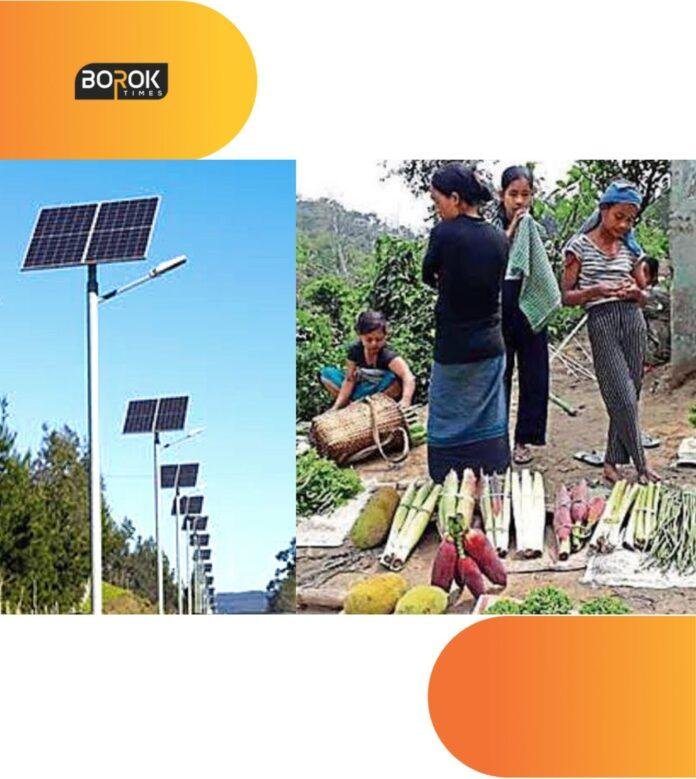The installation of solar-powered street lights in rural markets, especially in the tribal areas, was announced by Jishnu Dev Varma on 3 June, Friday.
Tripura Deputy Chief Minister Jishnu Dev Varma said the Tripura Renewable Energy Development Agency (TREDA) has taken up an ambitious project of installing solar-powered street lights in rural markets of the state, mainly located in the tribal villages.
“This is perhaps for the first time in the country that the state government is emphasizing sustainable power generation and consumption patterns in rural areas. It will give an impetus to the wheels of growth,” the deputy chief minister added.
Varma alleged that the left parties did not even work on anything nor even mentioned TREDA during their time of power though it was implemented long back already. He claims that the BJP government has approved the project and now energy-based apparatus are being introduced in the agriculture sector as well, and farmers are getting solar pumps in place of Rs 2,500. Varma also highlighted that no other state in the country provides such subsidy to farmers and that too with just a minimal amount where pumps cost 2.5 lakh.
As per Jishnu Dev Varma, “The solar street lights are being installed in 12 aspirational blocks on a priority basis. The project is now on the verge of completion.”
Elaborating on the project, Engineer Debbrata Sukla Das of TREDA said, “We have taken up the project with a plan of installing 15,000 solar-powered street lights, covering a total of 1,291 rural markets. The implementation began with the 12 aspirational blocks, where a total of 179 markets will be covered. For these markets, 2,351 streetlights have been allocated. The installation process is almost complete in six blocks, while in the rest of the six blocks work is in progress.”
Furthermore, TREDA distributed about 3 lakh solar study lamps among needy students, and more than 700 farmers have received solar pump sets. Also, biogas plants are distributed among thousands of beneficiaries. All these efforts are to popularize renewable energy sources as a subsidiary of the traditional energy sources,” said Das




